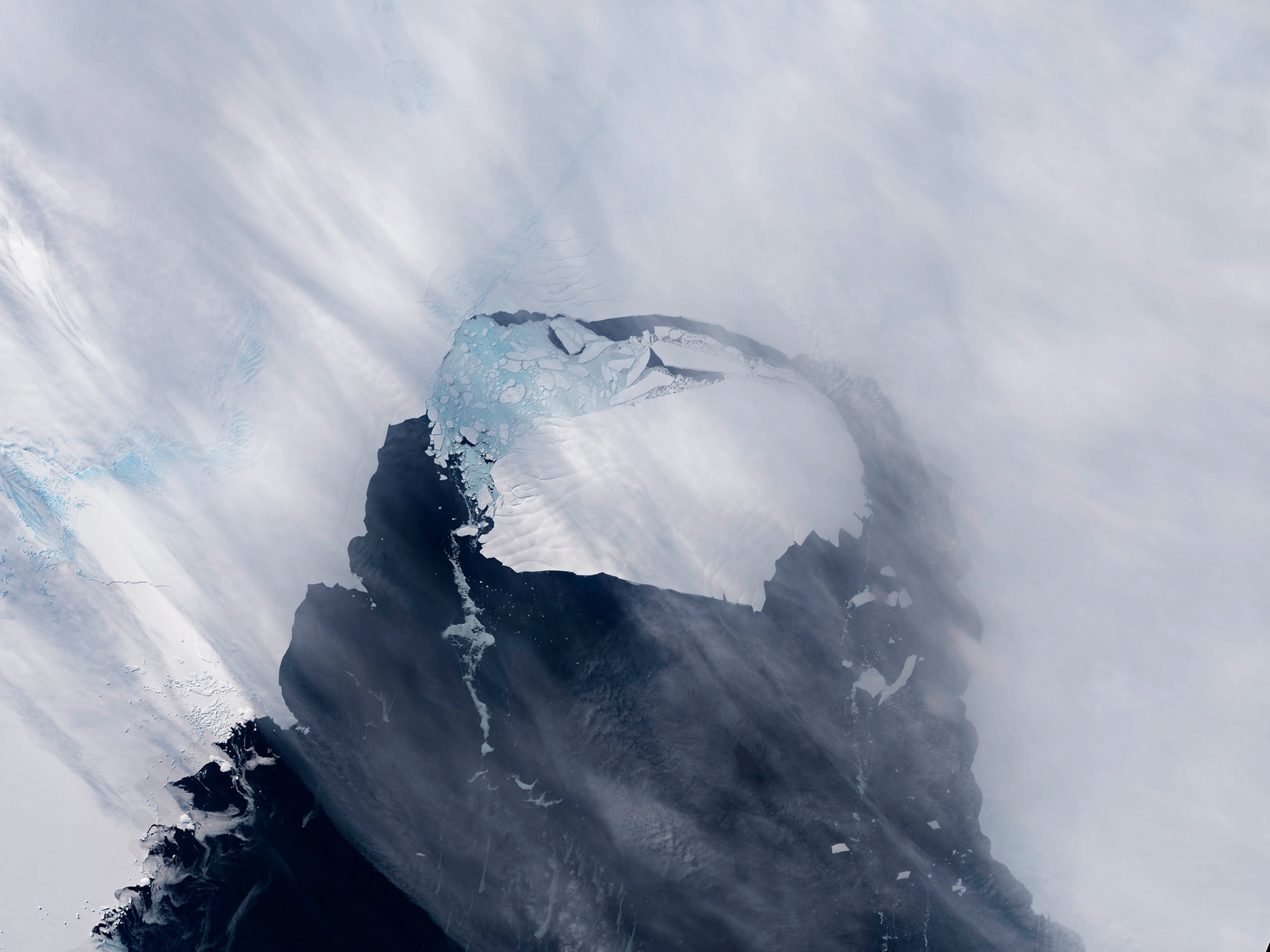
Warming Seas Drive Rapid Acceleration of Melting Antarctic Ice
As warm ocean water rises up to melt them, glaciers around the Amundsen Sea are losing half a Mount Everest a year.
Melting Antarctic glaciers that are large enough to raise worldwide sea level by more than a meter are dropping a Mount Everest's worth of ice into the sea every two years, according to a study released this week.
A second study, published Thursday in the journal Science, helps explain the accelerating ice melt: Warm ocean water is melting the floating ice shelves that hold back the glaciers.
The two new pieces of research come as officials of the World Meteorological Organization announced Wednesday that 2014 is on track to be the warmest year on record.
Scientists have long worried that the West Antarctic ice sheet is a place where climate change might tip toward catastrophe. The ice sheet holds enough water to raise sea level by 16 feet (5 meters). The region along the Amundsen Sea is the sheet's soft underbelly, where the ice is most vulnerable. (See "Rising Seas" in National Geographic magazine.)
Earlier this year, researchers at the University of California, Irvine and NASA's Jet Propulsion Laboratory reported that the glaciers flowing into the Amundsen Sea—notably the Pine Island and Thwaites Glaciers—were already doomed to collapse, and at the current rate of melting would be gone in 200 years. A study released Tuesday by members of the same team, published in Geophysical Research Letters, confirms those troubling measurements with ones made by other researchers using a total of four different techniques.
The study shows that ice loss from the Amundsen Sea glaciers has accelerated sharply over the past two decades. Between 2003 and 2011 it averaged an eye-popping 102 billion metric tons every year. Mount Everest—rocks, ice, and all—weighs approximately 161 billion metric tons. (See also West Antarctica Glaciers Collapsing, Adding to Sea-Level Rise.)
The decline is driven less by melting on the surface or changes in snowfall, and more by a speeding up of the glaciers' journey to the ocean, the scientists concluded. In some cases, glaciers reached speeds of more than a third of a mile in a year as they approached the Amundsen Sea, where they either merge into a floating ice shelf, or fall into the water and become icebergs.
The momentum behind this moving ice means the glacier loss is unlikely to stop any time soon, said University of California, Irvine geophysicist Isabella Velicogna, one of the authors of the new study. Velicogna likened the process to a ball at the top of a hill. "Once you give the first push, the ball just keeps rolling," she said.
Warming Ocean, Melting Ice
The study published today in Science provides a reason why this conveyer belt of ice might be accelerating. A team led by oceanographer Sunke Schmidtko of the GEOMAR Helmholtz Centre for Ocean Research in Germany found that the shallow waters in the Amundsen and nearby Bellingshausen Seas have been warming over the last three decades.
Warming ocean water has been a prime suspect for the decline of ice in the West Antarctic. Massive floating ice shelves there act like a cork, bottling up the ice sheets and glaciers behind them on land. Turn up the temperature in this water bath, and the ice shelves start melting faster, loosening the cork.
This study offers new clues about how that's happening. Merging a variety of data sets, along with their own observations, the researchers found that deep and relatively warm ocean water known as Circumpolar Deep Water has warmed at a rate of roughly .1 degree Celsius per decade (.18 degree Fahrenheit) since 1975 around most of the continent. That's thought to be tied to broader climate change that's pouring extra heat into the oceans, Schmidtko said.
At the same time, this warmer water has been shoaling, or rising closer to the surface, in many spots. In some cases it has risen more than 330 feet (100 meters ) in two decades, reaching depths of 1,000 feet (300 meters).
While one-tenth of a degree might not sound like much, it requires a tremendous amount of heat energy to warm that much water—and that heat can then help melt ice that comes in contact with the water, Schmidtko said.
How far that warmer water encroaches toward ice shelves varies around the continent, a difference that appears to be driven by the wind. As easterly winds blow counterclockwise around Antarctica, they create a current of cold water that acts like a wall, blocking much of the warmer water from getting up to the shallow ocean bottom beneath the ice, Schmidtko said. But those winds have shifted or weakened along the continent's western edge, making the current weaker and opening the door for warmer water to reach the ice. It's not yet clear what has caused this change, Schmidtko said.
He and his colleagues found worrying signs that the accelerated melting could spread to bigger glaciers elsewhere on Antarctica. Warm water in the southern Weddell Sea has risen from around 766 yards (700 meters) below the surface in the 1980s to approximately 383 yards (350 meters) after 2010, the scientists found. The ice shelves there connect to glacier systems more massive than the one in the Amundsen Sea. Melting there could cause sea levels to rise up to 10 feet (3 meters).
"If this shoaling rate continues, there is a very high likelihood the warm water will reach the Filchner-Ronne Ice Shelf, with consequences which are huge," Schmidt said.
Current predictions of sea level rise may understate the risk because they don't accurately take into account this shoaling of warm water in the Antarctic, said Sarah Gille, an oceanographer at the University of California, San Diego, who wasn't involved in the study. "This is really driving at the core of our uncertainty about the future of places where people live around the coast," she said.
Follow Warren Cornwall on Twitter.